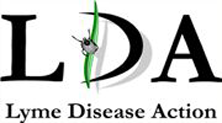Lyme Disease Action – Spring Campaign
2Oth February 2006
2005 showed a marked increase in the number of articles printed in the national press and scientific journals regarding Lyme disease (Lyme Borreliosis) – a bacterial infection commonly spread by the bite of an infected tick. (1).
Why is Lyme Borreliosis ‘hot news’ today?
Spring is the time of year when many people don their walking shoes and head for the countryside.
Spring is also when ticks start to feed in earnest.
If bitten by an infected tick, a person may experience a skin rash or short ‘flu-like illness which may progress to a poly-symptomatic long term illness caused by this systemic bacterial infection (2).
Although Borrelia has been endemic in Britain for over a hundred years, laboratory tests are still inadequate. A Scottish team has recently published data showing that one third of patients in the study were incorrectly reported as not testing positive for antibodies to Borrelia (3).
Incorrect or non-diagnosis of this disease and lack of treatment can result in major repercussions on people’s lives and put an unnecessary burden on the NHS and State welfare systems.
Latest News:
Tragically, three days before Christmas 2005, Isabella Radestock died of ‘liver disease due to Lyme sepsis’. This may be the first death due to Lyme Borreliosis recorded in England and Wales.
Her story was published by the Hartlepool Mail Thursday 9th February 2006 (4).
Please help Lyme Disease Action (LDA UK) prevent more lives from being ruined by this disease by running copy throughout spring in order to highlight the dangers of tick bites.
LDA can provide further information regarding this important health hazard for your readers.
Please do not hesitate to email the press team.
Thank you for your consideration.
Press Office
Lyme Disease Action.
Lyme Disease Action is a registered charity No. 1100448.
References:
(1) Lyme Disease Action website: https://www.lymediseaseaction.org.uk/
(2) ILADS (International Lyme and Associated Diseases Society ). http://www.ilads.org/
(3) Audit of the
laboratory diagnosis of lyme disease in Scotland. Abstract
(4) Hartlepool Mail: Help is needed to curb deadly illness.
Article
Further information:
(5) EuroLyme – Internet patients’ support group: http://health.groups.yahoo.com/group/EuroLyme/

 Printer Friendly
Printer Friendly